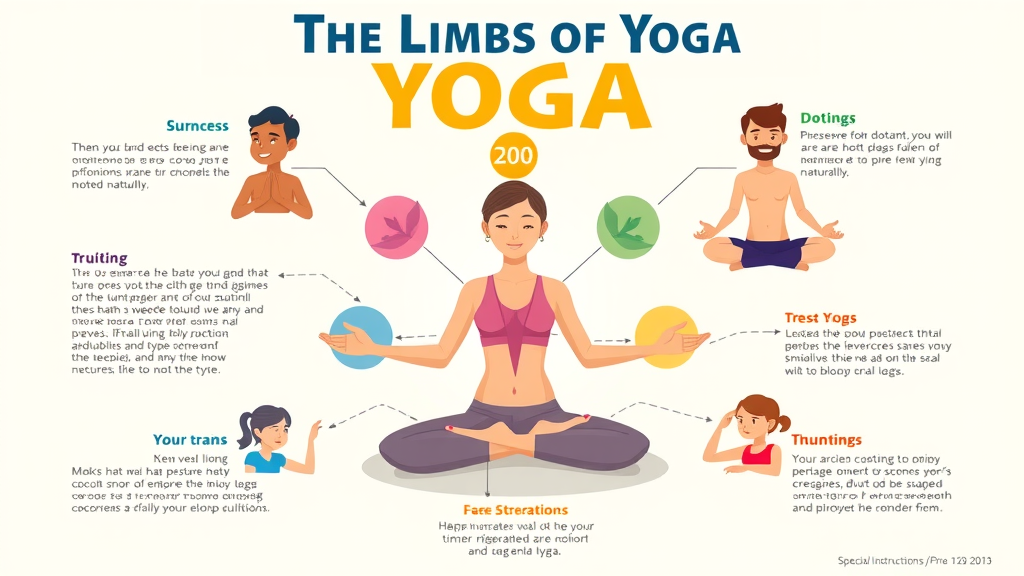Yoga is not just a practice; it is a profound journey into oneself, a way to connect with the deeper layers of existence. In a world filled with distractions, understanding the essence of yoga philosophy offers clarity and purpose. This article dives deep into the fundamental aspects of yoga philosophy, providing insights that will help you awaken to your true self.
Overview of Yoga Philosophy
Defining Yoga Philosophy
Yoga philosophy encompasses a variety of philosophical concepts and practices aimed at achieving spiritual enlightenment. Originating from ancient India, it is a holistic approach that integrates the mind, body, and spirit. At its core, yoga is about uniting the individual self with universal consciousness. Throughout its teachings, yoga encourages practitioners to explore their inner world and cultivate a life of balance and harmony.
The Importance of Awareness in Yoga
Awareness is a crucial component of yoga philosophy . It allows individuals to observe their thoughts, emotions, and actions without judgment. This heightened state of mindfulness enables practitioners to live in the present moment, leading to a more fulfilling and authentic existence. By fostering awareness, yoga cultivates a deeper connection with the self and enhances one’s ability to navigate through life’s challenges.

The Core Principles of Yoga Philosophy
The Eight Limbs of Yoga
The foundation of yoga philosophy lies in Patanjali's Yoga Sutras, which outline the Eight Limbs of Yoga . These limbs serve as a guide to living a meaningful and purposeful life. They include:
- Yama: Ethical standards and sense of integrity.
- Niyama: Self-discipline and spiritual observances.
- Asana: Physical postures practiced in yoga.
- Pranayama: Breath control techniques.
- Pratyahara: Withdrawal of senses.
- Dharana: Focused concentration.
- Dhyana: Meditation or contemplation.
- Samadhi: A state of ecstasy or absorption.
The Yamas and Niyamas
The Yamas (ethical standards) and Niyamas (personal observances) form the first two limbs of yoga and lay down the moral foundation that guides practitioners. The Yamas include principles such as ahimsa (non-violence) and satya (truthfulness), while the Niyamas emphasize self-discipline and spiritual growth through practices like tapas (self-control) and svadhyaya (self-study). Integrating these principles into daily life fosters a compassionate and mindful existence.

The Role of Meditation and Mindfulness
Meditation is a significant practice within yoga philosophy , serving as a tool for deepening awareness and fostering inner peace. By cultivating mindfulness through meditation, individuals can develop a greater understanding of their thoughts and emotions, leading to a more balanced life. Regular meditation practice also enhances focus and mental clarity, allowing practitioners to navigate their lives with intention.

The Bhagavad Gita and Its Influence on Yoga Philosophy
Key Teachings from the Bhagavad Gita
The Bhagavad Gita is a pivotal text in yoga philosophy, presenting an intricate dialogue between Lord Krishna and Arjuna that explores complex themes such as duty, righteousness, and the nature of the self. One of the core teachings is the importance of performing one’s duty without attachment to the results, a concept known as Karma Yoga . This principle encourages individuals to act in accordance with their dharma (duty) while maintaining a detached perspective towards success or failure.
How the Bhagavad Gita Shapes Modern Yoga Practice
Modern yoga practices draw heavily from the teachings of the Bhagavad Gita . The text inspires practitioners to commit to their paths with authenticity, approaching their practice as not merely physical but as a spiritual voyage. The Gita's advocacy for self-awareness and mindfulness resonates deeply with contemporary practitioners, cementing its relevance in today’s world.

Practical Applications of Yoga Philosophy
Integrating Yoga Philosophy into Daily Life
To truly embody yoga philosophy , integrating its principles into everyday life is essential. This can be achieved through simple practices such as mindful breathing, ethical living, and daily self-reflection. These practices not only enhance overall well-being but also foster a sense of community and connectedness with others. For those new to yoga, starting with a beginner-friendly approach can be beneficial. Consider exploring Yoga For Beginners - A Little Goes a Long Way to ease into the practice.
Yoga Philosophy in Schools and Communities
Implementing yoga philosophy in schools and community centers has demonstrated significant benefits for individuals of all ages. Teaching yoga principles in educational settings instills mindfulness and compassion in students, equipping them with tools to handle stress and improve focus. Furthermore, community yoga initiatives promote inclusivity and shared well-being, reinforcing the interconnectedness of all beings. For a practical session to start your day, try Greet The Day Yoga .
Expert Insights on Yoga Philosophy
"Yoga is really the art of waking up. Getting back to the true you. It can be that simple." - Adriene Mishler, Yoga With Adriene
Adriene's Perspective on Yoga's Impact
Adriene Mishler, the face behind Yoga With Adriene, emphasizes that yoga is accessible to everyone regardless of age or background. Her mission is to make the tools of yoga available to as many people as possible, fostering a global community that embraces mindfulness, compassion, and self-discovery. For more insights, explore her thoughts on The Courage To Show Up. That Is Where It Starts.
Best Practices for Embracing Yoga Philosophy
Embracing yoga philosophy requires consistency and commitment. Key practices include setting aside time each day for yoga and meditation, aligning one’s lifestyle with yogic values, and engaging in community practices. By dedicating oneself to these principles, individuals can cultivate a deep sense of inner peace and personal growth.
Common Misconceptions about Yoga Philosophy
Debunking Myths Surrounding Yoga
Many misconceptions about yoga persist, including the belief that it is solely about physical postures. While asanas are a significant aspect, true yoga extends beyond the mat. It is a comprehensive practice that encompasses physical, mental, and spiritual dimensions. Understanding yoga as a holistic journey helps dispel these myths.
Clarifying the True Essence of Yoga
The true essence of yoga lies in its ability to unite. It promotes harmony not only within the self but also with the world around us. By focusing on connection and mindfulness, yoga serves as a powerful reminder of our shared humanity and the importance of living with intention.
Key Takeaways from Yoga Philosophy

Summary of Core Concepts
- Awareness: Cultivating a mindful presence.
- The Eight Limbs: Principles guiding yoga practice.
- Community: The importance of shared experiences within yoga.
Encouragement to Explore Further
Whether you’re a seasoned practitioner or just beginning your journey, exploring the depths of yoga philosophy can lead to transformative experiences. Consider attending workshops, reading classical texts, and connecting with the yoga community to deepen your understanding.
FAQs about Yoga Philosophy
What is the philosophy of yoga?
The philosophy of yoga comprises the principles and practices that promote physical, mental, and spiritual well-being through the art of self-discovery and mindfulness.
What are the 5 principles of yoga?
The five principles of yoga often include proper exercise (asana), proper breathing (pranayama), proper relaxation, proper diet, and positive thinking (vedanta).
What is the basic theory of yoga?
The basic theory of yoga revolves around the connection of the mind, body, and spirit, emphasizing the journey of self-realization and enlightenment.
What are the five elements of yoga philosophy?
The five elements of yoga philosophy include breath (prana), body (asana), mind (meditation), heart (bhakti), and consciousness (vipassana).
Conclusion
Final Thoughts on Embracing Yoga Philosophy
Embracing yoga philosophy is a journey of awakening to the richness of life. By integrating its principles into daily practices, we can cultivate mindfulness, compassion, and a sense of community.
Call to Action
Join the global community of yoga practitioners and explore the transformative power of yoga philosophy today. As Adriene Mishler wisely puts it, "The process is the candy. Enjoy!"
"The process is the candy. Enjoy!" - Adriene Mishler, Yoga With Adriene
Video: Understanding Yoga Philosophy
A short explanatory video exploring the philosophical aspects of yoga with insights from practitioners and experts, educational tone, and engaging visuals.

 Add Row
Add Row  Add
Add 




Write A Comment